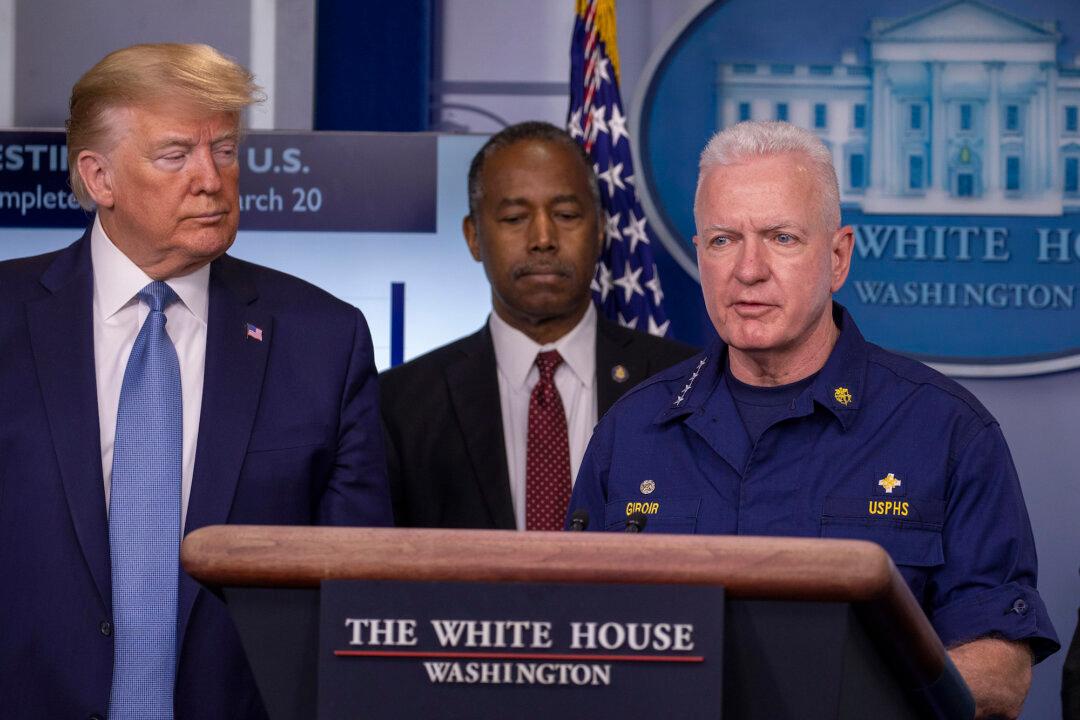The Trump administration urged Americans that as COVID-19 testing ramps up across the nation against a backdrop of short supply of personal protective equipment and other gear, priority should be given to health care workers, symptomatic individuals, and the elderly.
“State-run drive-throughs are expanding across the country,” Vice President Mike Pence said at a March 21 briefing, adding that the number of Americans tested for COVID-19 through March 20 spiked to 195,000, and that 19,343 people had been diagnosed with the virus at the time.





